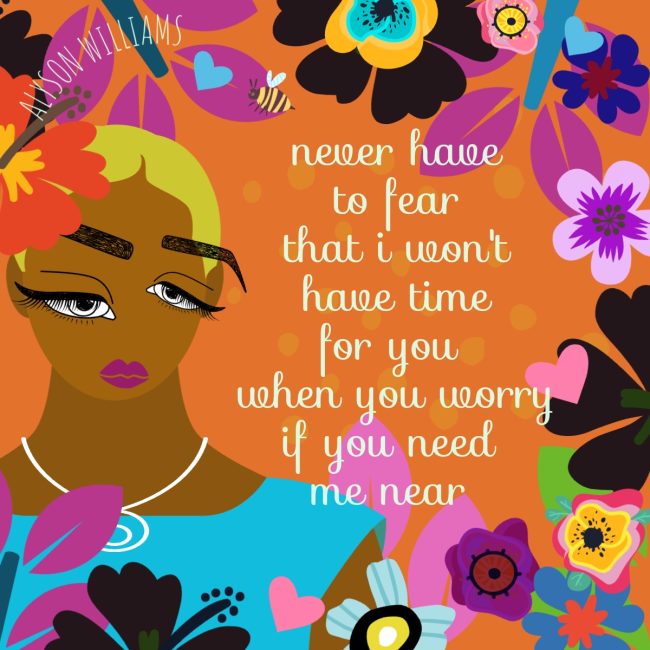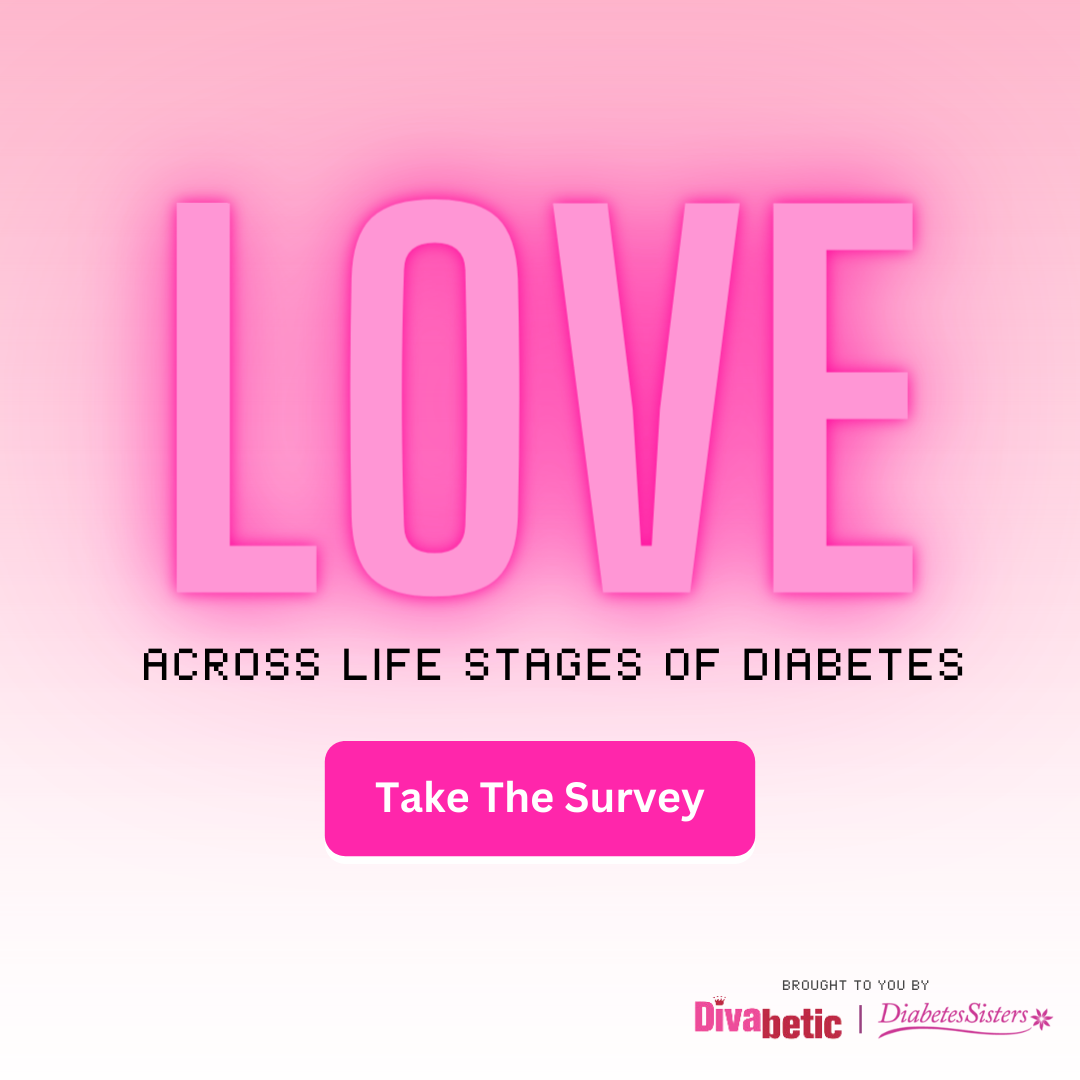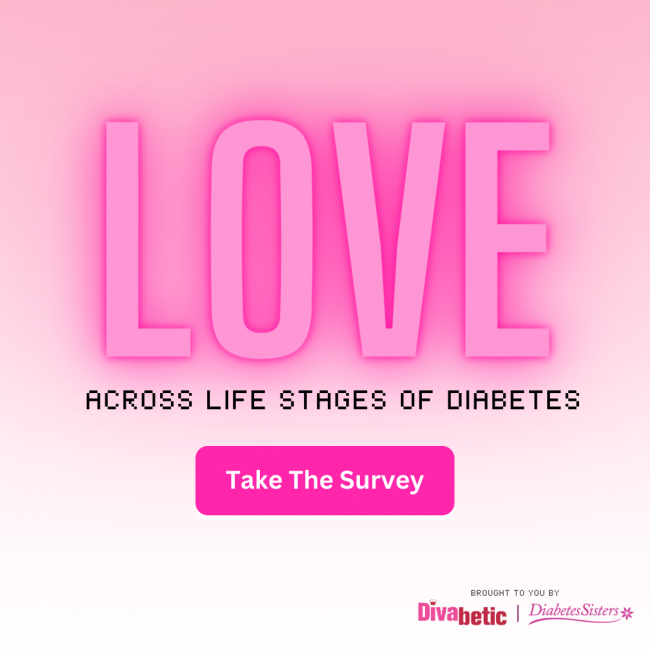On the seventh day of Blue Christmas my true friend, Asha Brown sent to me a copy of ‘Unleash Your Inner Diabetes Dominator: How to Use Your Powers of Choice, Self-Love, and Community to Completely Change Your Relationship with Diabetes for the Better’ by Daniele Hargenrader to inspire me.
Divabetic is celebrating a Blue Christmas to bring attention to the mental health issues related to living with diabetes.
You probably know better than we do how diabetes affects your holiday experience. You might feel the weight of diabetes more at this time, because you can’t let go and celebrate like everyone else. Or maybe you do let go and then beat yourself up over it.
That’s why we asked our panel of experts, friends and past Diabetes Late Nite podcast guests to spread some holiday cheer by sharing their favorite products to help keep you ‘happy and healthy’ all year long.

Asha’s pick: “Unleash Your Inner Diabetes Dominator” is a guidebook filled with inspiring stories showing you how to claim your personal power written for people with diabetes and our loved ones. Learn how to use your powers of choice, self-love, and community to completely change your relationship with diabetes for the better, and how to turn a perceived adversity into advantage.
After reading this book, you can expect to feel a paradigm shift in the way you look at diabetes, an increased confidence in yourself and your capacity to handle any challenges you are faced with, as well as a feeling of pride and accomplishment as you take the actions you need to take and see positive results.
3 BONUSES: Get an online health and wellness training program for FREE (over $100 Value) when you take action now. See diabetesbook.com for details.
Readers have also reported feeling a sense of freedom from the physical and emotional stress and anxiety of the day to day management of diabetes including type 1, type 2, pre-diabetes, LADA, gestatational, and MODY.
“This book is perfect for ANY person living with diabetes. It will help you learn how to live your life with joy and empowerment!,” says Asha Brown.
What is a Diabetes Dominator?
“Diabetes Dominator is a state of mind: Instead of diabetes being perceived as a weakness or a curse, diabetes can actually be a great source of strength if we choose to let it,” says Danielle. “We all have the power to turn adversity into advantage. Diabetes can be a catalyst for improving our lives, paying closer attention to what matters most in life, and for being of service to others. I didn’t always feel this way, and that’s why I wrote this book,” adds Danielle.
ABOUT DANIELLE: After Danielle Hargenrader’s type 1 diabetes diagnosis at age 9 and the unexpected and sudden death of her father a few years later, she ballooned up to 200 pounds, and battled clinical depression and a binge eating addiction for over 8 years. Through these adversities, she eventually took herself from obese to athlete. Her book ‘Unleash Your Inner Diabetes Dominator’ provides you witha shortcut (system) to the she took, and continues to travel to this day.
Asha Brown is the Founder and Executive Director of the amazing We Are Diabetes (WAD) organization. WAD is primarily devoted to promoting support, education and awareness for type 1 diabetics who suffer from eating disorders. WAD is dedicated to providing guidance, hope and resources to those who may be struggling, as well as to their families and loved ones.

Asha Brown was diagnosed with type 1 diabetes when she was 5 years old. As a dancer, actress and a fitness instructor by the time she was 17, the obsession with maintaining a healthy size and weight while coping with multiple autoimmune disorders (hypothyroidism, polycystic ovary syndrome, as well as type 1 diabetes) became a full-time job. Asha’s experience with symptoms of diabulimia led her to start the We Are Diabetes organization.
Today, Asha works with families, patients, and health professionals across the USA. She uses her personal experiences with ED-DMT1 to offer hope and support to those still struggling. She also establishes relationships with eating disorder facilities and diabetes organizations across the county to help connect people to appropriate care. Asha has presented at NEDA, AADE, and JDRF, among others. She writes for numerous websites including Diabetes Health, Diabetes Daily, and Beyond Type 1. She is a member of Diabetes Advocates and BEDA.
If you or someone you know is a type 1 diabetic who is struggling with an eating disorder and are seeking support, or if you have any other questions or concerns, please don’t hesitate to reach out to WAD

For the past three years, Asha Brown has made our Diabetes Mystery podcasts truly sparkle! She’s played the organic farmer, ‘Christine’ in ‘Phantom of the Okra’, the uptight, overworked personal assistant, ’Primrose Crump’ in ‘Suspect Boulevard’ and most recently the glitzy burlesque dancer, Coco Mimosa in this year’s Diabetes Mystery: ‘Gypsies, Tramps & Peas’. She truly brings out the best of each performance. I’m so grateful to Asha for sharing her wonderful acting talents with our listeners and helping us raise awareness for diabetes and educate people about diabetes self-care in a fun, new way.
On December’s Diabetes Late Nite podcast we’re celebrating a Blue Christmas. I chose this theme in December because ‘Blue’ is the color that I most closely associate with diabetes and I feel that the mental health issues related to diabetes are often overlooked and ignored. Some listeners may feel that talking about depression is depressing which is understandable. However, I feel it is far more important to reach out to those coping with diabetes distress and burnout and let them know they are not alone. Please join us!

TUNE IN! Don’t miss December’s Diabetes Late Nite podcast featuring music by Elvis Presley on Tuesday, December 12, 2017, 6 PM, EST. We will be discussing ways to not let diabetes make you feel ‘blue’ during the holiday season with our panel of experts. Guests include ‘Walking With Peety’ Author Eric O’Grey, Chilbrook Kennels Breeder Author, Diabetes Alert Dog and Scent Detection Expert, Debby Kay, Poet Lorraine Brooks, Susan Weiner MS, RDN, CDE, CDN, the Charlie’s Angels of Outreach featuring Patricia Addie-Gentle RN, CDE and America’s #1 Energy Conductor, High Voltage. Throughout the podcast we will be featuring songs from the new “Christmas with Elvis and The Royal Philharmonic Orchestra” album courtesy of SONY Music. The album brings together Elvis Presley’s best-loved yuletide performances from “Elvis’ Christmas Album” (1957) and “Elvis Sings the Wonderful World of Christmas” (1971) re-imagined with sublime and exquisite new arrangements performed by The Royal Philharmonic Orchestra.
NEED MORE INSPIRATION? Our panel of experts, Divabetic community members and past Diabetes Late Nite guests will be sharing more Blue Christmas Gift suggestions on this blog for the next twelve days to help you enjoy the festive spirit of the season without compromising your diabetes health!

Are you feeling ‘blue’ this holiday season?
You’re not alone.
While it’s true that sadness and/or depression at holiday time can be a reaction to the stresses and demands of the season, people with diabetes are more likely to be depressed than others states David Spero BSN, RN for Diabetes Self-Management.
Diabetes can cause complications and health problems that may worsen symptoms of depression. Depression can lead to poor lifestyle decisions, such as unhealthy eating, less exercise, smoking and weight gain — all of which are risk factors for diabetes.
The good news is that diabetes and depression can be treated together. And effectively managing one can have a positive effect on the other.
If you think you might be depressed, seek help right away. Your doctor or diabetes educator can refer you to a mental health professional.
https://youtu.be/Uwfz5mMLSDM





















